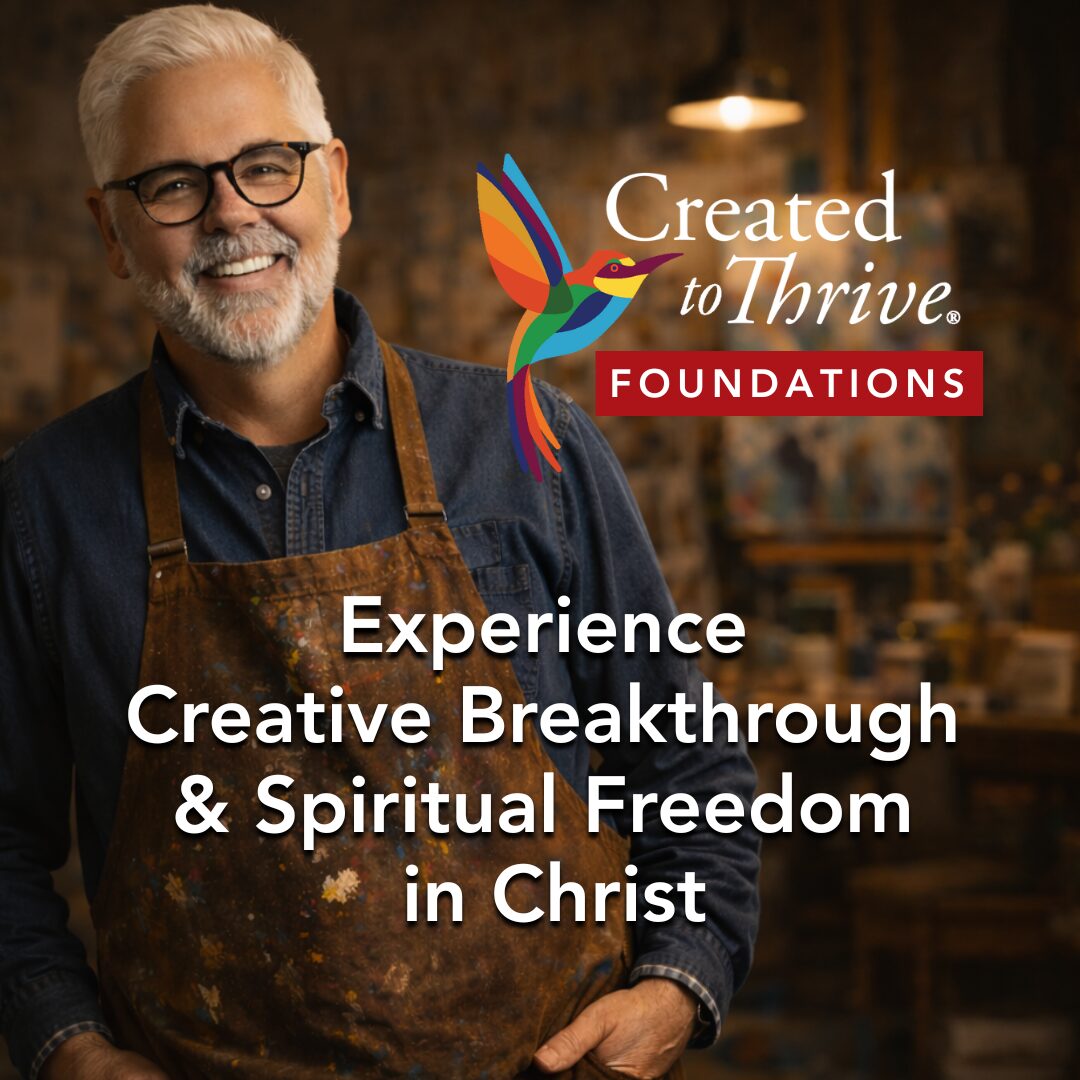
For artist solo-preneurs, the journey of building a successful creative business is both rewarding and challenging. While the freedom to create and the potential for success are significant, the pressures and demands can often lead to unhealthy coping mechanisms.
Failing to address these issues can result in frustration, overwhelm, and setbacks, no matter how talented you are as an artist or businessperson. Understanding these challenges and developing healthy, faith-based responses is crucial to thriving personally and professionally.
Here, we explore common triggers and unhealthy coping mechanisms, offering Christian alternatives to help you navigate your journey more effectively.
Feelings That Trigger Unhealthy Coping Mechanisms
- Stress and Overwhelm: The demands of running a solo art business can often feel like too much to handle, leading to a sense of being overwhelmed and stressed.
- Anxiety and Fear: Worries about the future, fear of failure, and uncertainty can cause persistent anxiety.
- Depression and Sadness: Deep feelings of sadness or hopelessness can lead to depression, making it difficult to see a way forward.
- Traumatic Events: Past traumas, whether physical, emotional, or psychological, can continue to affect us long after the event has passed.
- Loneliness and Isolation: Feeling disconnected from others can lead to a profound sense of loneliness and isolation.
- Conflict: Interpersonal conflicts can create stress and emotional turmoil, disrupting our peace.
- Financial Problems: Financial instability or stress about money can lead to significant anxiety and stress.
- Perceived Failure: Failing to meet our own or others’ expectations can result in feelings of inadequacy and self-doubt.
- Health Issues: Chronic illness or health concerns can create ongoing stress and fear about the future.
Unhealthy Coping Mechanisms
When faced with these triggers, it’s common to turn to unhealthy coping mechanisms. These behaviors may provide temporary relief but ultimately lead to more significant problems.
- Isolate: When overwhelmed by stress or sadness, some may choose to isolate themselves, withdrawing from friends, family, and community. This isolation can deepen feelings of loneliness and despair, making it harder to find the support needed to overcome challenges.
- Procrastinate: Fear of failure or indecision can lead to procrastination. By putting off decisions and actions, the stress and anxiety only increase, creating a vicious cycle of avoidance and guilt.
- Self-medicate: Using substances or behaviors to temporarily numb emotional pain is a common but dangerous coping mechanism. Whether it’s alcohol, drugs, food, or other unhealthy habits, self-medicating does not address the root of the problem and can lead to addiction and further emotional distress.
- Ruminate: Overthinking and dwelling on negative thoughts can be torturous. Ruminating keeps us stuck in a cycle of anxiety and fear, preventing us from moving forward and finding peace.
- Berate: Beating oneself up for perceived failures or mistakes can destroy self-esteem and create a harmful pattern of self-criticism. This negative self-talk can lead to deeper feelings of worthlessness and depression.
Healthy Christian Alternatives
As Christians and as artists, we are called to live in a way that reflects our faith and trust in God. By turning to Christ-centered coping mechanisms, we can find true peace and healing.
- Community – Connect, Share, Pray, Encourage: Instead of isolating, we should seek out the support of our faith community. Sharing our burdens with trusted friends, family, and fellow believers allows us to receive encouragement and prayer. Ecclesiastes 4:9-10 reminds us, “Two are better than one, because they have a good return for their labor: If either of them falls down, one can help the other up.”
- Prayerful Action – Trust God and Act: When faced with fear and indecision, we must place our trust in God and take steps forward in faith. Proverbs 3:5-6 encourages us, “Trust in the Lord with all your heart and lean not on your own understanding; in all your ways submit to him, and he will make your paths straight.” By seeking God’s guidance and acting on His wisdom, we can overcome procrastination and fear.
- Give it to God – Release the Burden to God and Ask for His Peace: Instead of self-medicating, we should turn to God in prayer, releasing our burdens to Him and asking for His peace. Philippians 4:6-7 instructs us, “Do not be anxious about anything, but in every situation, by prayer and petition, with thanksgiving, present your requests to God. And the peace of God, which transcends all understanding, will guard your hearts and your minds in Christ Jesus.”
- Meditate on God’s Word and His Promises: To counteract ruminating on negative thoughts, we should meditate on Scripture and God’s promises. Psalm 1:2-3 says, “But whose delight is in the law of the Lord, and who meditates on his law day and night. That person is like a tree planted by streams of water, which yields its fruit in season and whose leaf does not wither—whatever they do prospers.” By filling our minds with God’s truth, we can find comfort and direction.
- Self-Compassion through God’s Grace: Instead of berating ourselves, we must remember that we are loved and valued by God. Romans 8:1 assures us, “Therefore, there is now no condemnation for those who are in Christ Jesus.” Embracing God’s grace allows us to practice self-compassion and forgive ourselves, fostering a healthier self-image.
The Importance of Victory in These Areas
Gaining victory over unhealthy coping mechanisms is essential for thriving in life, art, and business as entrepreneurs. When we rely on negative behaviors, we hinder our ability to fully experience the abundant life God has planned for us. John 10:10 states, “The thief comes only to steal and kill and destroy; I have come that they may have life, and have it to the full.”
By adopting healthy, faith-based coping strategies, we open ourselves to God’s transformative power. We can experience true peace, joy, and fulfillment, allowing us to excel in our creative endeavors and business pursuits. As we grow in our ability to cope with life’s challenges through Christ-centered practices, we become better equipped to serve others and fulfill our God-given purpose.
Remember, recognizing and addressing unhealthy coping mechanisms is a crucial step in our spiritual journey. By turning to God and embracing healthy alternatives, we can overcome the triggers that lead us astray. Through community, prayerful action, releasing our burdens to God, meditating on His Word, and practicing self-compassion, we can find true healing and peace. Let us strive to live in a way that reflects our faith, trusting in God’s grace and guidance to navigate life’s challenges and thrive in all we do.



Leave a Reply